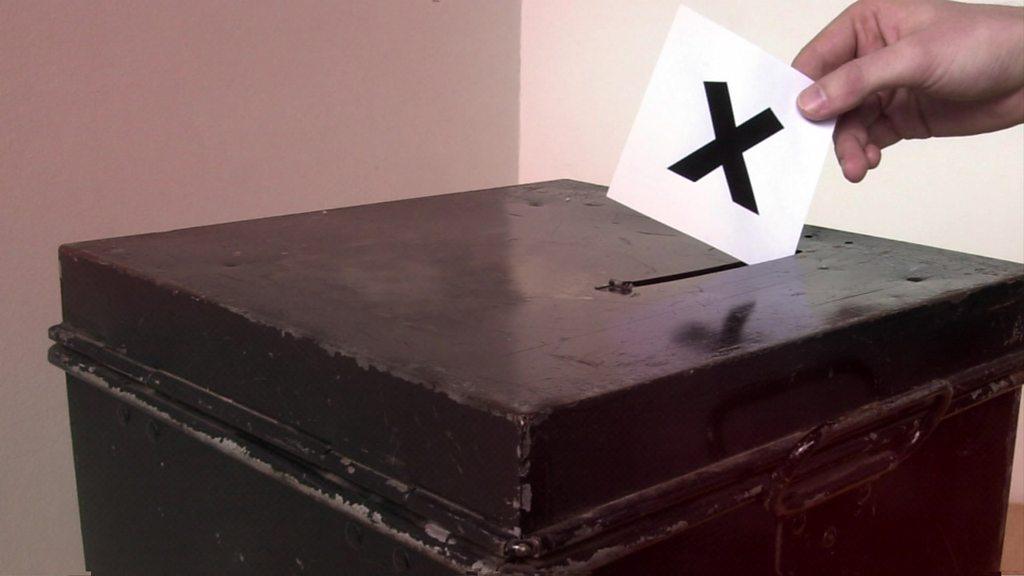Can Jeremy Corbyn win over Labour members a second time?
- Published
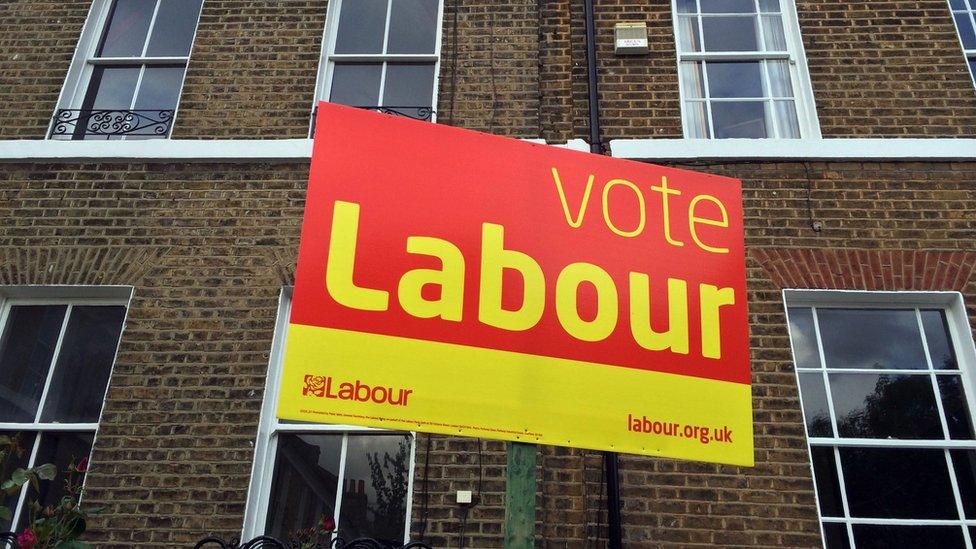
"They have just killed the Labour Party."
That's what a Labour official told me just after this week's marathon meeting of Labour's National Executive committee, which had decided to put Jeremy Corbyn automatically on the leadership ballot without the need to demonstrate any support from his fellow MPs.
But that wasn't the consensus view amongst the anti-Corbynistas on Labour's ruling body.
"We can beat him," another told me, enthusiastically.
He recalled that Mr Corbyn had won a smidgen less than 50% of the vote amongst existing party members last September - his much-talked about mandate of nearly 60% from all participants in the leadership election was bolstered by trade union affiliates and the cut-price supporters who had signed up for the vote by paying £3.
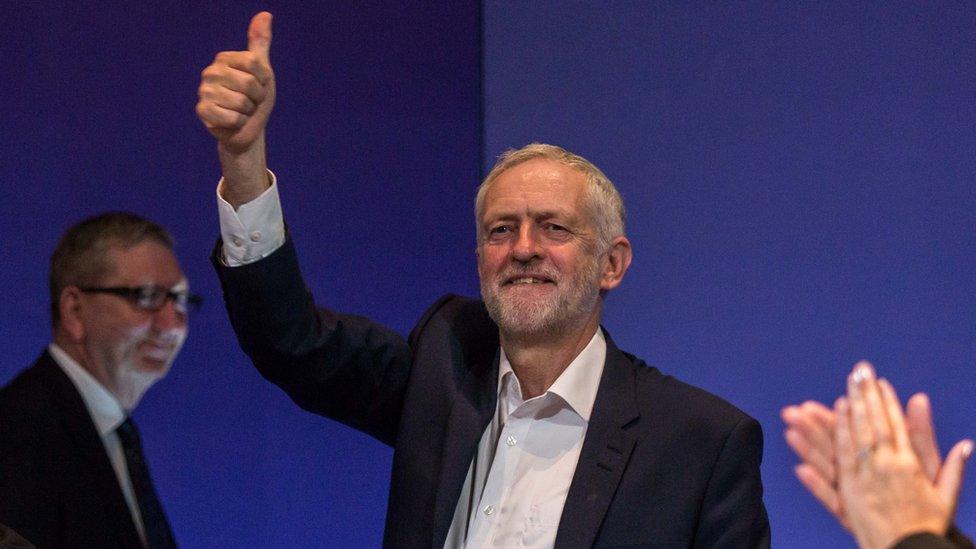
Jeremy Corbyn has already won one Labour leadership battle - and is now set for another
So this optimistic anti-Corbynista delighted in pointing out that the current party leader had been talking to the media en-route to a supporters' rally - at the very point the NEC was deciding two crucial issues.
First, the "£3" would have to pay eight times as much to participate in the forthcoming leadership election - £25 to be precise, and have just two days to sign up.
And fully-paid up members would have to have joined the party on or before 12 January to participate.
The current membership stands at 515,000 but was only 388,000 in January.
The assumption was that many of the more recent members signed up to back the beleaguered leader - even though his opponents in the "Saving Labour" group had also been drumming up support - so at a stroke of an NEC pen they were disenfranchised.
Even though the party moved to the left between last year's general election and January, there is also an assumption that the longer people have been members, the more disillusioned with the leadership they become.
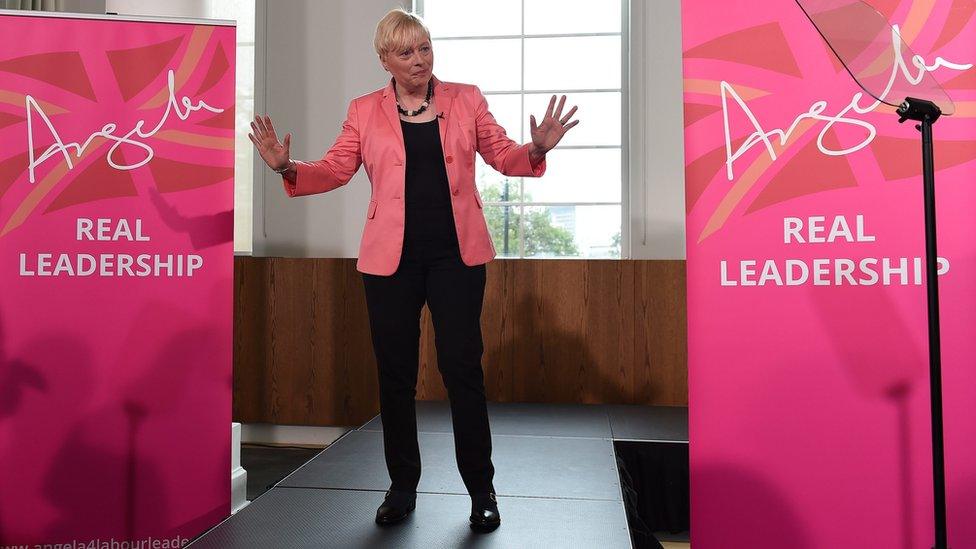
Angela Eagle was the first to formally challenge Jeremy Corbyn for the party's leadership
So who's right? Those who think Mr Corbyn will win or those who think - with the help of that membership freeze - he is vulnerable?
Professor Tim Bale is the author of Five Year Mission, an account of Ed Miliband's time as leader of the opposition. But his study of Labour members, external since the general election demonstrates how the rank and file has both expanded and moved leftwards.
He and his colleagues at London's Queen Mary University and at Sussex University have examined the views and the background of those party members who had joined before February this year - so it's pretty close to those who will be eligible to vote in the leadership contest.
With just a narrow 48-hour window - opening on Monday and closing on Wednesday - for supporters to sign up, Professor Bale's "subjects" are likely to form the bulk of the selectorate.
And his research suggests that Owen Smith is quite astute in badging himself as a left-wing anti-austerity candidate. Angela Eagle, too, has said she would lead the party from the left, though her longer track record in Parliament might become a liability rather than an asset these days.
Given that his findings suggest 95% of members believe that government public spending cuts have gone too far, 94% distrust big business, and 92% - in the words of the Levellers (the pop group not the Civil War radicals) - see wealth redistribution as the new solution, the candidates have little choice.
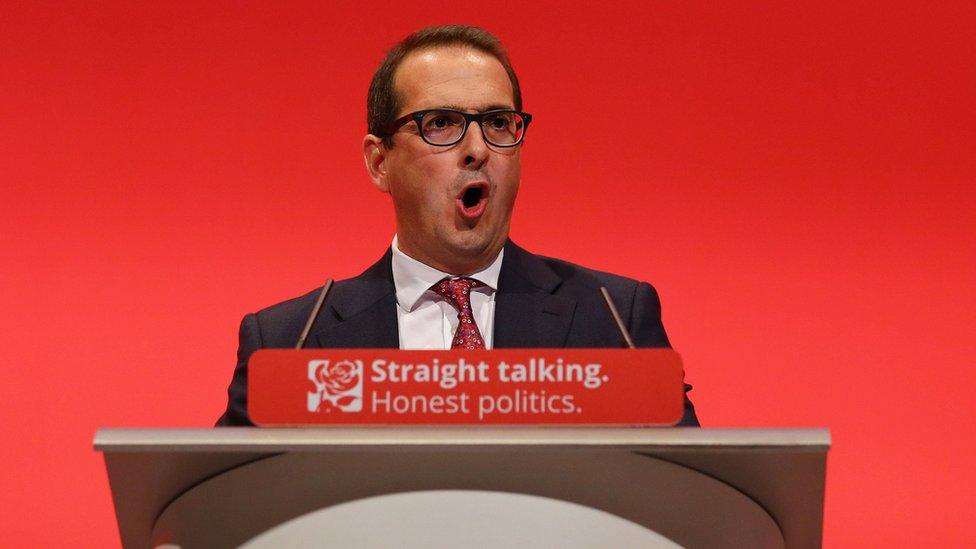
Owen Smith resigned from the shadow cabinet, and is now standing for its leadership
And while many in the parliamentary party are worried about a growing gap - on issues such as immigration and the EU - with supporters in what were once Labour heartlands in northern England, leadership candidates would probably be wise not to concentrate in the next couple of months on reflecting those concerns.
That's because the membership are strongly in favour of immigration. Asked to say - on a scale of one to seven - whether they thought immigration was good for the economy, the collective score was 5.74. Eight out of 10 wanted to remain in the EU, compared with a little more than six out of 10 Labour voters.
Their attitudes on other issues are overwhelmingly liberal - 84% back equal marriage, just one in five want tougher sentences for criminals.
And fewer than you might think live in some of the areas where Labour traditionally drew its support - nearly half of members (47%) live in London and southern England. Just over one in four - 28% - live in northern England.
Some 75% of members belonged to the social classes ABC1 - professional, managerial and skilled workers - and 57% have a degree.
As the party faces an influx of new members last summer to support Mr Corbyn, officials tried to weed out those who didn't share Labour values.
That was straightforward where an applicant had stood for a rival party against Labour, but it was far more difficult to become "thought police". So if a potential member had voted, rather than stood for a party to the left of Labour, who was to say that they hadn't just changed their mind?
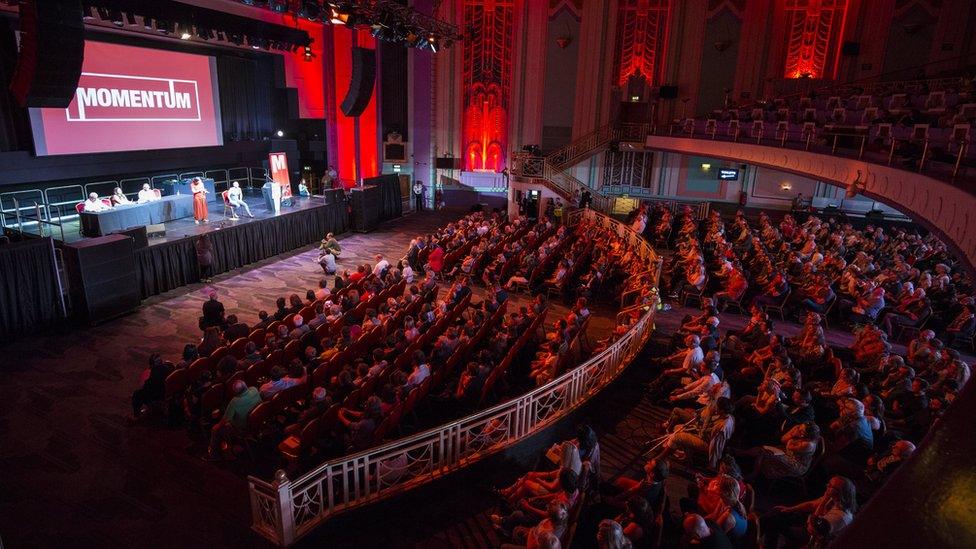
The Momentum movement has been holding events to support Jeremy Corbyn's leadership
Rather than widespread "entryism" from Trotskyists - though there clearly was some - Prof Bale has discovered that many of those signing up last year were defecting from the Greens.
Former Green Party voters now account for nearly one in 10 of Labour's members. The average age of members is 51, suggesting that many who perhaps previously left over Iraq or because of Tony Blair's rightward shift, have now rejoined.
Now, Mr Corbyn's opponents may portray themselves as not too far to his right, and argue strongly that the main factors dividing them from him aren't so much policies but competence, and an ability to reach out beyond a left-wing core.
However, the research suggests only one in five members value in a leader an ability to unite the party - only one in four are looking for strength and authority.
So can Jeremy Corbyn win the leadership a second time? It's likely that he will face a greater struggle, and he will be under greater scrutiny. But his supporters are likely to look at the make-up of the membership and declare "Jez He Can".
If, however, a legal challenge to force him to seek nominations from 51 MPs and MEPs succeeds, then that - not the selectorate - is far more likely to scupper his chances.
- Published21 September 2016
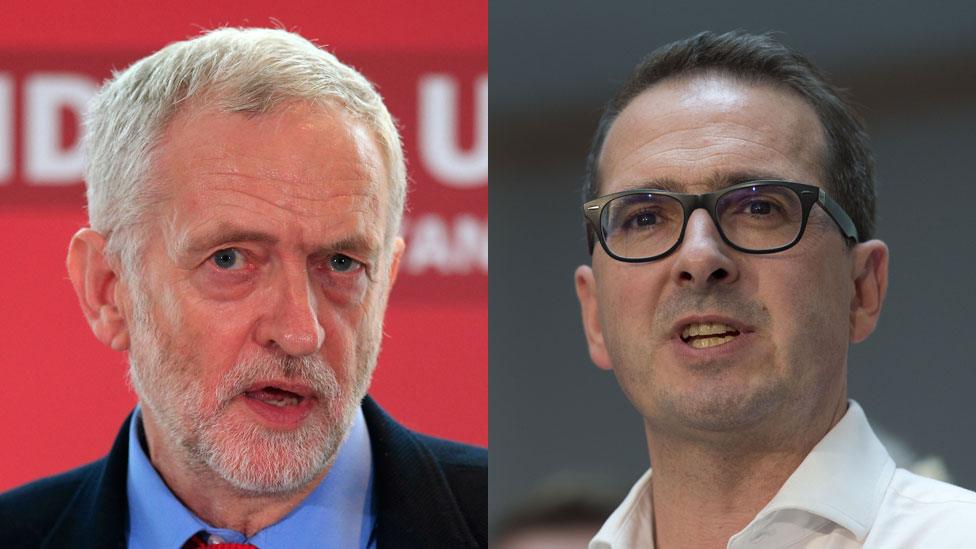
- Published14 July 2016
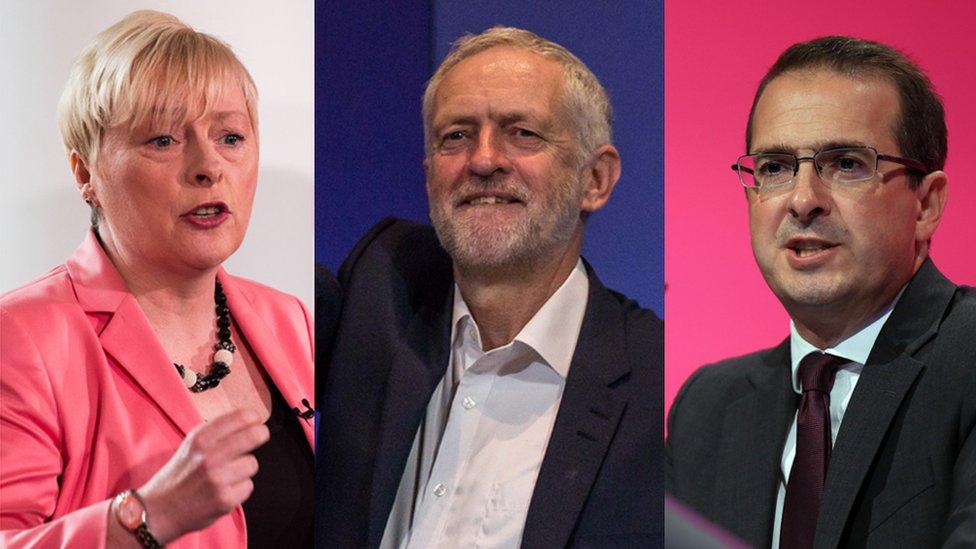
- Published11 July 2016
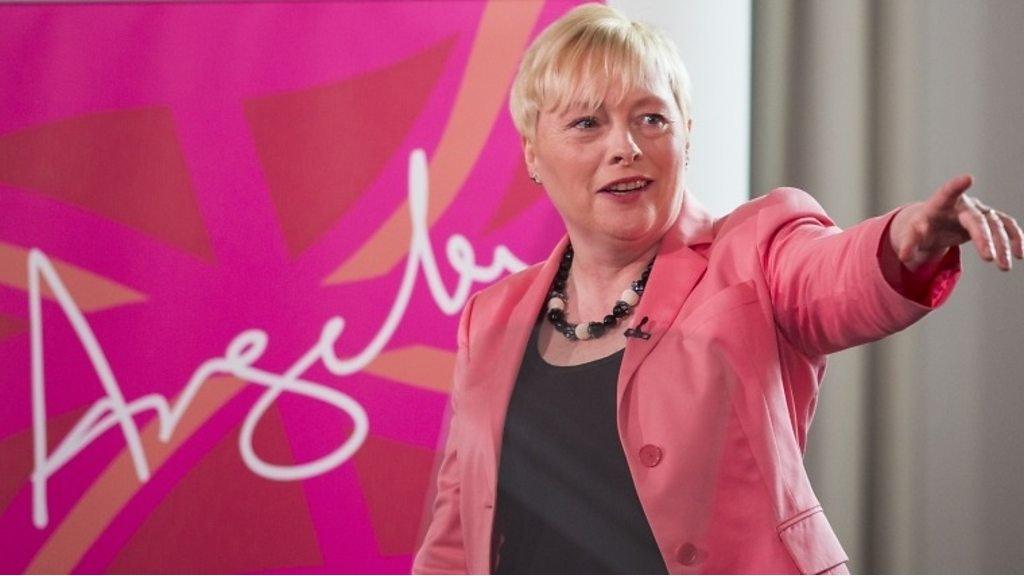
- Published13 July 2016
